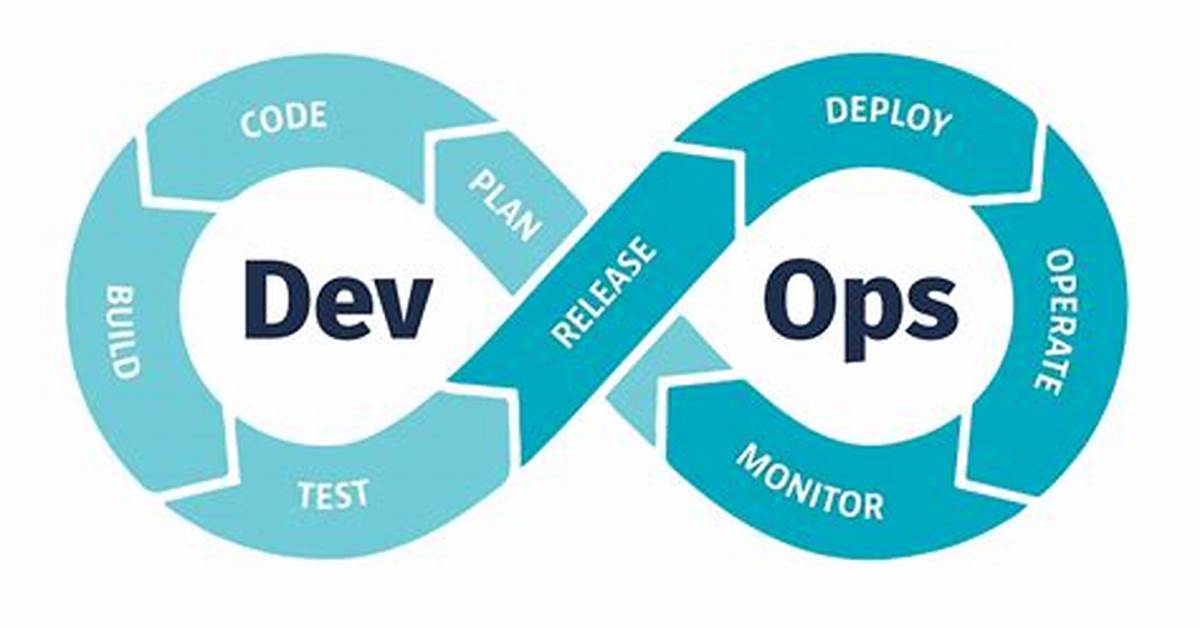Introduction to DevOps🤝
 Diksha Mehta
Diksha Mehta
Table of Contents:
What is DevOps? 🤔
DevOps Lifecycle🔄
Automation🤖
Scaling📈
Infrastructure🏗️
Why DevOps is Important?⭐️
Conclusion 🔚
What is DevOps?🤔
DevOps is a way of working that brings together the teams responsible for developing software (Dev) and managing its operation (Ops). It focuses on collaboration, automation, and continuous improvement to make the process of building, testing, and deploying software faster, more efficient, and more reliable.
DevOps LifeCycle🔄
The DevOps lifecycle encompasses the stages involved in developing, deploying, and maintaining software applications using DevOps practices. While the specific implementation may vary between organizations, the general DevOps lifecycle consists of the following stages:
Plan: In this stage, the development and operations teams collaborate to define project goals, requirements, and priorities.
Code: Write and revise code using version control systems.
Build: Compile and package code into executable software artifacts.
Test: Perform automated testing to detect and fix bugs.
Deploy: Deploy tested artifacts to the target environment using automation tools.
Operate: Monitor software performance and ensure availability and reliability.
Monitor: Continuously monitor software and infrastructure for insights and improvements.
Feedback: Gather feedback from users and stakeholders for continuous improvement.
Automation🤖
Automation in DevOps refers to using technology and tools to perform tasks and processes automatically. It involves automating repetitive and time-consuming activities throughout the software development and deployment lifecycle.
Some examples of automation in DevOps include:
Continuous Integration (CI): Automating the process of integrating code changes from multiple developers into a shared repository. It involves automatically building and testing the code to identify any integration issues or conflicts.
Continuous Deployment (CD): Automating the process of deploying software to various environments, such as development, testing, staging, and production. It allows for consistent and repeatable deployments, reducing the chance of human error and ensuring a smooth release process.
Infrastructure as Code (IaC): Automating the provisioning and configuration of infrastructure resources, such as servers, networks, and databases, using code. With IaC, infrastructure can be defined and managed through scripts or configuration files, making it more consistent, scalable, and easily reproducible.
Scaling📈
Scaling refers to the ability to handle increased workloads, demands, or growth efficiently and effectively. It involves adjusting and expanding resources, infrastructure, and processes to accommodate the needs of a growing application or user base.
Infrastructure🏗️
DevOps emphasizes the use of infrastructure as code, which means managing and provisioning infrastructure resources (e.g., servers, networks, and databases) through code. This approach enables organizations to define and manage their infrastructure configurations programmatically, leading to greater consistency, scalability, and efficiency.
Why DevOps is Important?⭐️
DevOps is important because it helps organizations deliver software faster, work better together, and improve the quality of their software.
Faster Software Delivery: DevOps enables teams to release software more quickly and frequently. This means new features and improvements can reach users faster, keeping up with their needs and expectations.
Better Collaboration: DevOps brings development and operations teams closer, fostering teamwork and communication. This collaboration eliminates misunderstandings, reduces delays, and helps everyone work towards a shared goal.
Improved Software Quality: With DevOps, there is a strong emphasis on testing, automation, and monitoring. This ensures that software is thoroughly checked for issues, reducing bugs and errors, and providing users with a more reliable and stable experience.
Increased Stability: DevOps practices focus on automation and continuous monitoring of software and infrastructure. This helps identify and address issues proactively, leading to more stable and reliable systems.
Flexibility and Scalability: DevOps enables organizations to adapt quickly to changing needs. It allows for scaling infrastructure resources up or down based on demand, ensuring systems can handle increased workloads without disruption.
Continuous Improvement: DevOps promotes a culture of continuous learning and improvement. Teams regularly gather feedback and use data to make informed decisions, leading to iterative enhancements and better software over time.
Business Agility: By embracing DevOps, organizations become more agile and responsive to market demands. They can release features faster, react quickly to customer feedback, and stay ahead of the competition.
Conclusion:🔚
DevOps is a transformative approach that combines software development and IT operations to streamline the software delivery process. It emphasizes collaboration, automation, and continuous improvement to achieve faster, more efficient, and higher-quality software releases.
Ultimately, DevOps fosters a culture of collaboration, agility, and continuous learning. It empowers organizations to adapt to changing market demands, deliver software faster, and improve customer satisfaction. By embracing DevOps principles and practices, businesses can gain a competitive edge, drive innovation, and thrive in today's fast-paced digital landscape.
Stay Connected with me for more interesting articles on Cloud and DevOps by following me on hashnode , linkedin (linkedin.com/in/diksha-mehta-34136779)
Thankyou for the reading! Keep Supporting ,learning and growing with each other .
Subscribe to my newsletter
Read articles from Diksha Mehta directly inside your inbox. Subscribe to the newsletter, and don't miss out.
Written by
